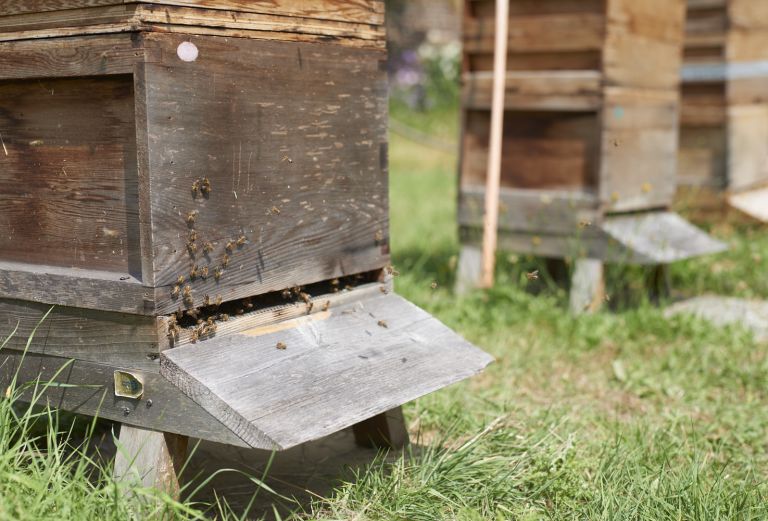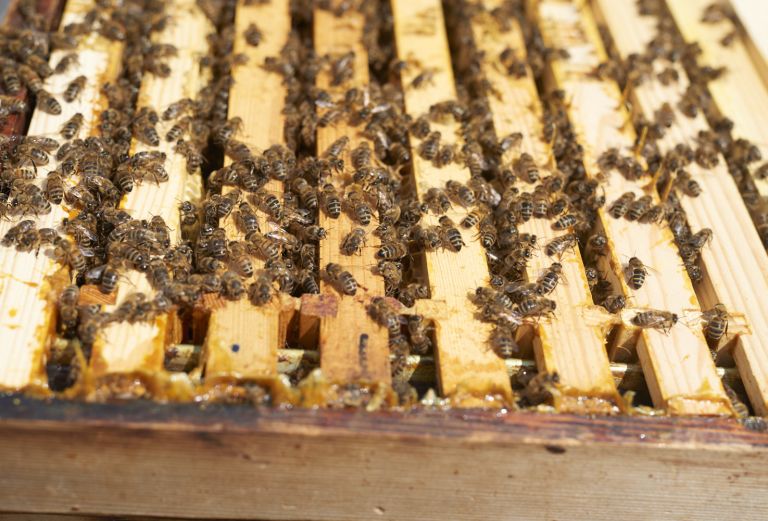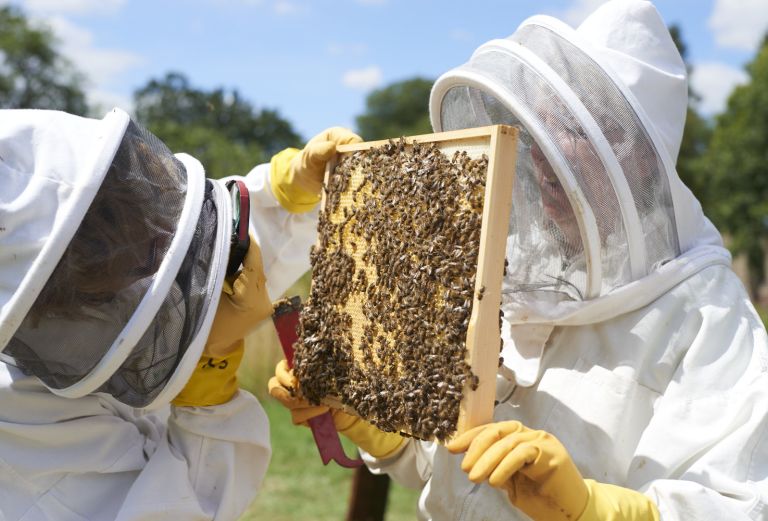
by Sarah Nicholl-Carne, volunteer beekeeper
Those of you who are using the gardens at Fulham Palace for your allotted daily exercise might have noticed that the beehives are no longer in the orchard apiary. Many visitors have asked where they are.
The answer is that just before Christmas, when the beekeeping team went for their regular check, we found that all the bees in all three of our hives were dead. It was a shocking discovery and we are still trying to work out what caused such a sudden, catastrophic collapse.
In late November, the bees appeared to be thriving; they were busy, out foraging in the walled garden, and clustering around the queen in each of their hives. They had plenty of stored honey and we fed them a supply of special fondant – essentially sugar paste – just to make sure they didn’t go hungry. The weather was not particularly cold, and in early December when we walked through the walled garden we could see plenty of activity around the hives.

What went wrong? We sent off samples of the dead bees for analysis; a bee post-mortem. The report came back that they did all have a common fungal infection called nosema, which is akin to dysentery for honeybees. It is rarely fatal; usually it causes a gradual decline in colonies, from which they can recover.
The other common problem for bees in most countries is a parasitic mite called varroa. These are present in virtually all British bee colonies (except on the Isles of Scilly) and we treat our bees regularly so they never become infested. The weather in early December was very wet and there was moisture inside the hives, but rain in winter in London is not unusual! The deaths are a mystery which we are still trying to fathom. There seems no reason why all three colonies should fail so suddenly and simultaneously.

But all is not lost. We already have plans to acquire new bees in the spring, and hope to have at least one hive back in the usual spot in May. Look out for them; we can’t wait to see honeybees back at the Palace.
